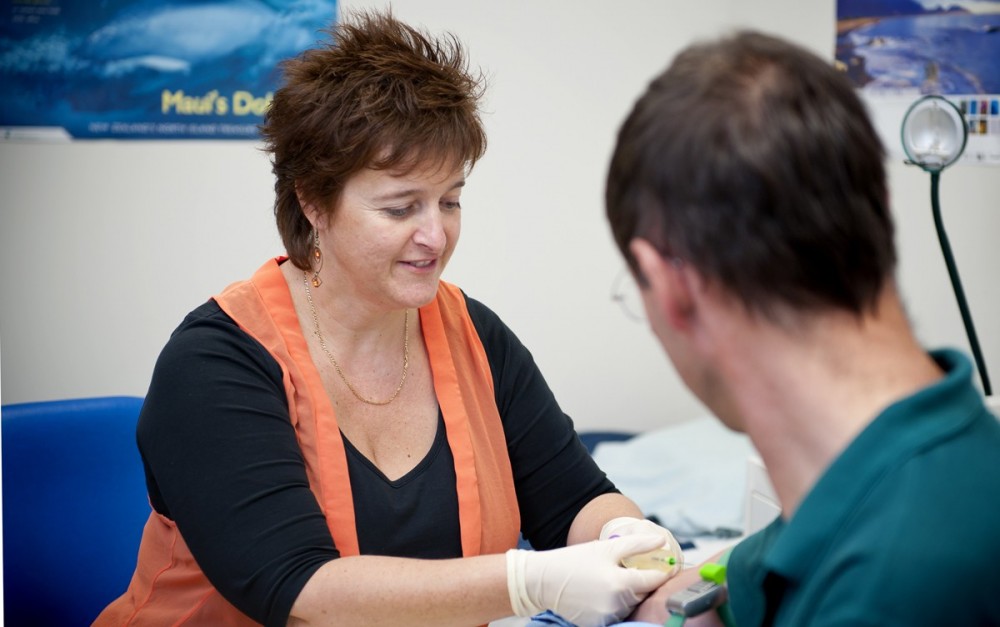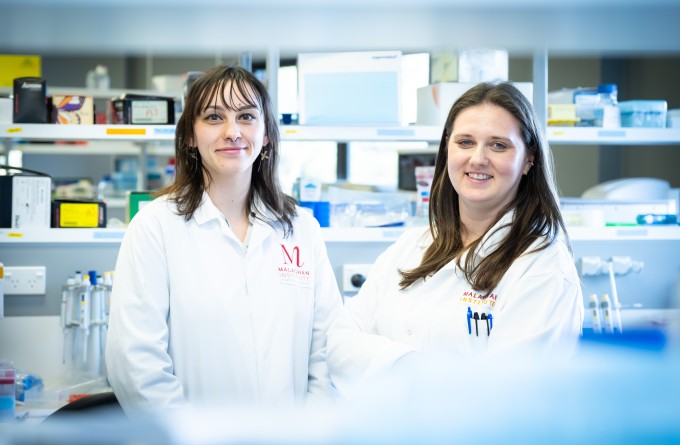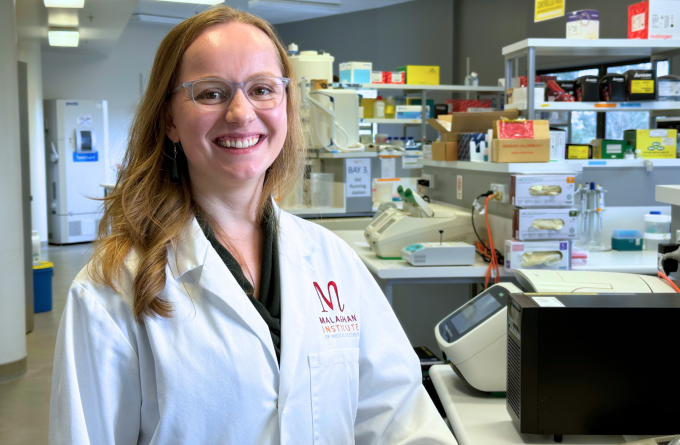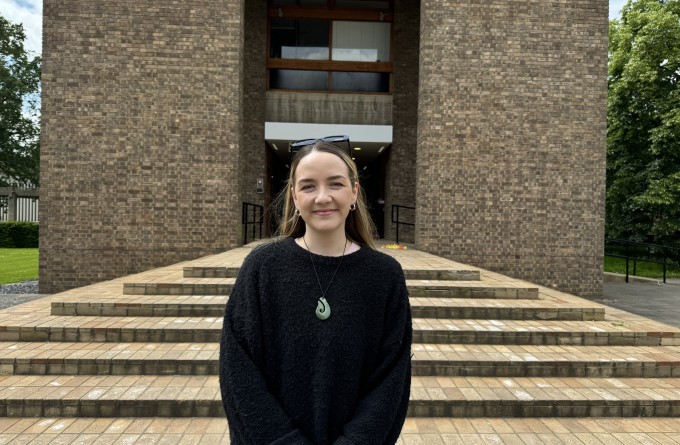10 June 2021
A clinical study getting underway in Rotorua and Christchurch will provide valuable information on how our unique population responds to the Pfizer-BioNTech COVID-19 vaccine.

The study, ‘Ka Mātau, Ka Ora' (from knowledge comes wellbeing), is being led by Vaccine Alliance Aotearoa New Zealand – Ohu Kaupare Huaketo (VAANZ) and is being undertaken to inform the national COVID-19 strategy and ultimately enhance vaccine effectiveness and confidence.
“While the Pfizer-BioNTech vaccine has demonstrated efficacy and safety in pivotal clinical trials and real-world studies, it has not yet been studied in New Zealand,” says the Malaghan Institute’s Dr Fran Priddy, VAANZ Clinical Director. “We want to understand how New Zealanders’ immune systems respond to the vaccine, particularly in populations likely at higher risk from COVID-19, such as Māori, Pasifika and the elderly.”
Dr Priddy says with vaccine safety already being closely monitored and evaluated in New Zealand and internationally, Ka Mātau, Ka Ora will focus on characterising immune responses.
“Studies done post-vaccination in other countries have shown lower antibody responses in some groups, such as the elderly and those with obesity.
“We don't know if this translates to reduced effectiveness, but it will be very hard to measure effectiveness unless we have a large outbreak. So measuring immune responses is the best proxy right now for us in New Zealand.”
Dr Priddy says our ‘COVID-naïve’ population will also offer unique data to global research. “Vaccine immune responses may differ in populations with little prior viral exposure, as is currently the situation in New Zealand.”
There are ways to increase immune responses to vaccines says Dr Priddy, so if the study identifies responses that may impact effectiveness, this could be addressed in the future by booster shots, different vaccination schedules, or different vaccine types.
Clinical Immunologist Dr Maia Brewerton, who is on the Malaghan Institute’s Te Urungi Māori advisory board, says that Aotearoa is in an enviable position due to our elimination strategy and measuring specific immune markers offers a useful alternative approach to assess the vaccine response amongst our people.
“Māori and Pasifika have a greater burden of conditions like heart disease associated with more severe COVID-19 disease, however even after we account for these conditions, Māori and Pasifika are still at increased risk of developing severe disease. We know there is more to learn and this research is important to help identify and understand any differences in the immune response which can guide the optimal vaccine approach for our people,” she says.
“During the influenza pandemics last century, Māori experienced higher death rates and I hope with knowledge from research like this we can prevent a repeat of this story for Māori as we journey into the uncertain future of this COVID-19 pandemic together – Ka Mātau, Ka Ora.”
Ka Mātau, Ka Ora
Ka Mātau, Ka Ora (from knowledge comes wellbeing) is a clinical study to evaluate the immunogenicity of COVID-19 vaccine regimens in adults in New Zealand. It is being sponsored by the Malaghan Institute of Medical Research (as part of VAANZ) in collaboration with Pacific Clinical Research Network (PCRN), the Ministry of Health and the Human Vaccines Project.
Recruitment for Ka Mātau, Ka Ora is being undertaken at two PCRN study sites – Lakeland Clinical Trials in Rotorua and Southern Clinical Trials in Christchurch. The study aims to enrol at least 300 adult participants with a focus on Māori, Pasifika, older adults ≥65 years old, and those with co-morbidities associated with increased risk of COVID-19. The study will assess immune responses for up to 12 months after the last vaccine dose.
Anyone interested in getting involved in the study can contact:
Lakeland Clinical Trials (Rotorua)
07 347 7870
[email protected]
lakelandtrials.com
Southern Clinical Trials (Christchurch)
0800 358788
[email protected]
sctrials.co.nz
Related articles

Winter and the immune system
23 June 2025

New research group taking aim at ageing immunity
20 June 2025

Dr Michelle Linterman: Asking the age-old question
30 April 2025

As easy as breathing: the future of vaccines
31 October 2024

Fever: too hot to handle or the body's first line of defence?
22 August 2024

Rejuvenating the ageing immune system
17 July 2024
